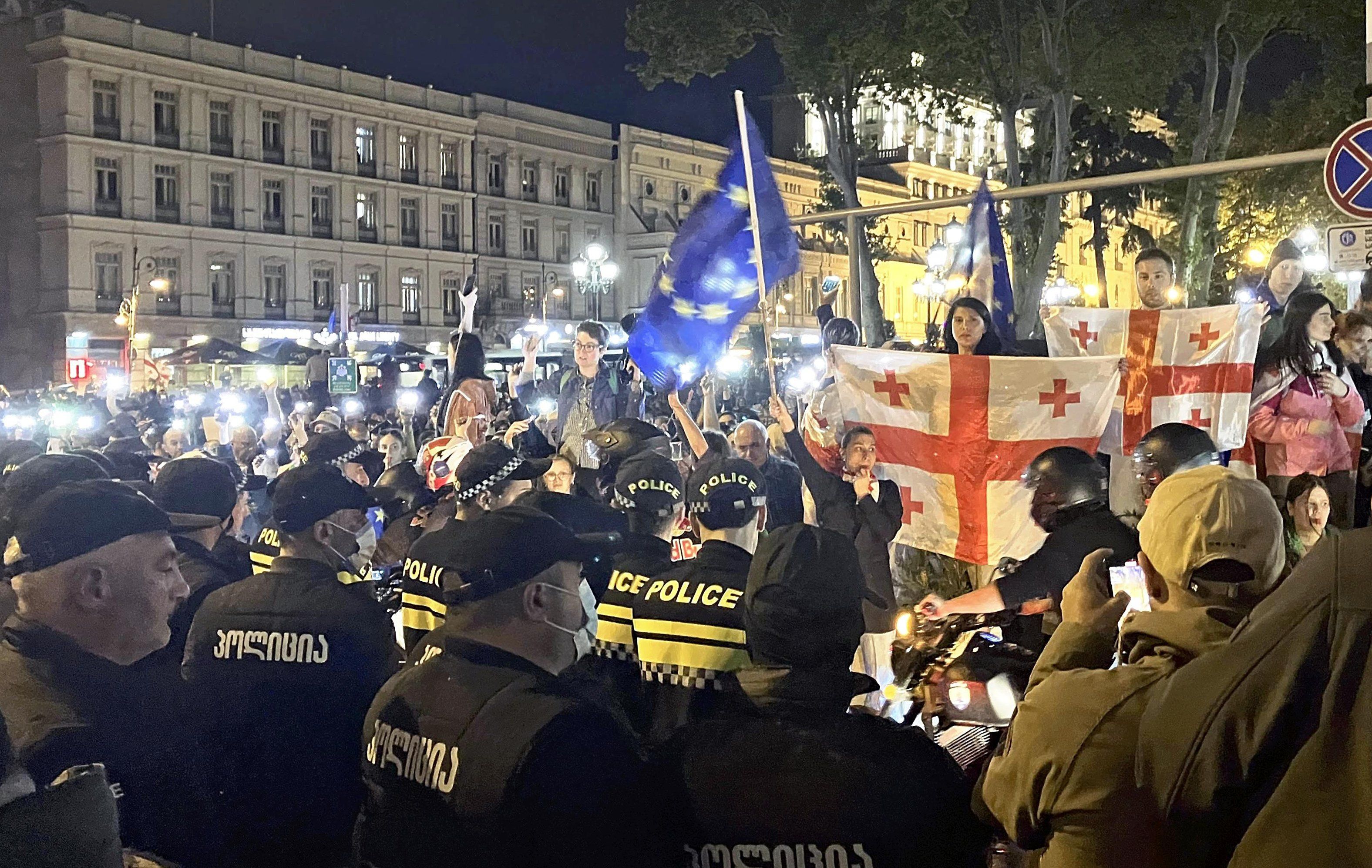May 09, 2024
Tbilisi is bracing for another round of mass protests on Saturday ahead of a major parliamentary milestone for the controversial “foreign agents” bill advanced by the ruling Georgian Dream party. If it passes its third reading in parliament — which has been moved up to Monday — opponents say Georgian Dream and its éminence grise, Bidzina Ivanishvili, will derail the European ambitions of the country’s youth.
The bill, modeled on a similar Russian law Putin’s regime has used to choke off dissent, was already shelved after similar mass protests last year. Georgia-born Eurasia Group analyst Tinatin Japaridze says the government isn’t likely to surrender this time, which could lead to escalation. If protests on Saturday grow outside the capital, in Georgian Dream’s strongholds, the government could be tempted to crack down violently. It has already accused protesters of attempting a putsch.
Brussels warned this bill would make it hard for Georgia to join the EU, a goal written into the country’s constitution. That suits Ivanishvili, who has deep ties to Moscow, but Japaridze says Gen Z Georgians are dead set against a Russian orientation.
“It's really not just about visa-free travel and the ability to work in Europe,” she says, explaining that democracy and human rights are “not some artificial values that these kids have put on as a costume to go out and protest. This is who they truly believe they are, and this is what they're fighting for.”
With parliamentary elections scheduled for Oct. 26, we’re keeping an eye out for violence, and for a leader to emerge from Georgia’s splintered opposition.
More For You
World Central Kitchen staff hand out free soup in a neighbourhood that experiences electricity and heating outages following recent Russian attacks on Ukraine’s civilian infrastructure during subzero temperatures in Kyiv, Ukraine February 3, 2026.
REUTERS/Thomas Peter
1,170: The number of high-rise buildings in Kyiv that were left without heating following a barrage of Russian attacks last night on Ukraine’s capital and its energy facilities, per Kyiv Mayor Vitali Klitschko.
Most Popular
What We’re Watching: US critical minerals summit, Rafah crossing reopens, Border violence in Pakistan
Feb 02, 2026
U.S. President Donald Trump and Japanese Prime Minister Sanae Takaichi hold up signed documents regarding securing the supply of critical minerals and rare earths, at a bilateral meeting at Akasaka Palace in Tokyo, Japan, October 28, 2025.
REUTERS/Evelyn Hockstein
Representatives from the European Union, United Kingdom, Japan, and others will meet in Washington this week to discuss a strategic alliance on critical minerals.
Hard numbers: Large protests in Czechia, UAE-linked firm has large stake in the president’s company, & More
Feb 02, 2026
People take part in a rally in support of Czech President Petr Pavel, organised by Million Moments for Democracy group in reaction to dispute between President Pavel and Czech Foreign Minister and Motorists chair Petr Macinka, in Prague, Czech Republic, February 1, 2026.
REUTERS/Eva Korinkova
80,000: The number of people estimated to be in the streets of Czechia on Sunday to show their support for President Petr Pavel after he blocked the nomination of an environmental minister who performed the Nazi salute and posted Nazi memorabilia.
US President Donald Trump and musician Nicki Minaj hold hands onstage at the US Treasury Department's Trump Accounts Summit, in Washington, D.C., USA, on January 28, 2026.
REUTERS/Kevin Lamarque
The US has started handing $1,000 to the bank accounts of newborn babies. But can policies like this one help boost sagging birthrates in advanced democracies?
© 2025 GZERO Media. All Rights Reserved | A Eurasia Group media company.
